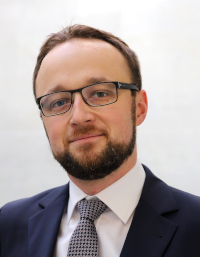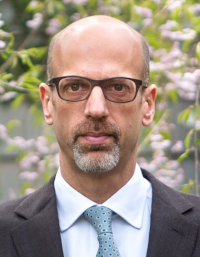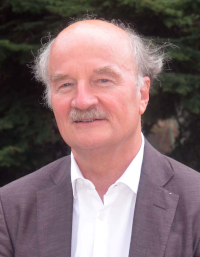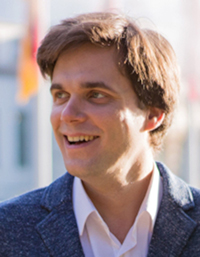
Consumer Law, Technology and Inequality
Transatlantic Seminar
The Transatlantic Seminar on Consumer Law, Technology, and Inequality is a joint initiative of five partners: the Max Planck Institute for Comparative and International Private Law, the Yale Law School Center for the Study of Private Law, Jagiellonian University in Cracow, the Free University in Berlin, and the European University Institute in Florence. The seminar seeks to create a space for sharing knowledge, ideas, and experience across geographic and professional boundaries, with a special emphasis on bringing US and European scholars, policy-makers, and social activists together. Each session will combine speakers who rarely appear together but share interests at the intersections of law, economics, and society.
Two fundamental themes run through all the sessions. First, consumer law has a larger role to play in combatting rising economic and social inequalities and promoting social justice than the conventional wisdom recognizes. And second, a rising “legal tech for good” movement promises to empower consumers and consumer organizations by increasing their capacity for providing meaningful oversight of market actors and for enforcing consumer rights. We believe that a rigorous understanding of the practical problems that contemporary consumers face, and also of the legal environment in which they operate, is essential in order for consumer law and tech fully to realize their potential to combat inequality.
20 April 2022: Big Tech, Consumers and Inequality
10:00 - 11:20 ET | 16:00 - 17:20 CEST
Speakers:
Margrethe Vestager (Executive Vice President of the European Commission for A Europe Fit for the Digital Age)
Fiona Scott Morton (Yale University)
Giorgio Monti (Tilburg University)
Sarah Miller (American Economic Liberties Project)
Moderation: Przemysław Pałka (Jagiellonian University in Cracow)
Upcoming events:
Past events:
The Organizers
Mateusz Grochowski
Max Planck Institute for Comparative and International Private Law
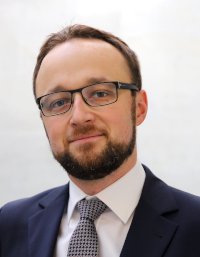
Mateusz Grochowski obtained his Ph.D. cum laude at the Institute of Law Studies of the Polish Academy of Sciences (supervised by Prof. Dr. Dr. h.c. mult. Ewa Łętowska), receiving the prize for the best Polish dissertation in private law. He holds a title of Master of Laws (LL.M.) from the Yale Law School.
He is an Affiliated Follow at the Information Society Project (Yale Law School) and was an Emile Noël Fellow at New York University School of Law. Prior to joining the Max Planck Institute, he was an Edmond J. Safra Fellow at the Buchmann Faculty of Law, Tel Aviv University and a Max Weber Fellow at the European University Institute. He has been also appointed as a Member of the Office of Studies and Analyses of the Supreme Court of Poland.
He received several scholarships and awards, including Fox International Fellowship (Yale) and a scholarship for the outstanding legal researchers of the Foundation for Polish Science.
He was a teacher and a guest lecturer in various academic institutions, including Fordham University School of Law, University of Münster, University of Trento, European University Institute, University of Wrocław and the College of Europe. He participated as a principal researcher in several research projects, funded inter alia by the Polish National Science Centre, National Agency for Academic Exchange and the European Commission. He has been also a Member of the Research Group on the Law of Digital Services of the European Law Institute and an editor at the "Journal of European Consumer and Market Law" (EuCML).
Bertram Lomfeld
Freie Universität Berlin

Professor of law at Free University Berlin and co-founder of the Free University Empirical Legal Studies Center (FUELS). He studied law, philosophy, sociology and economics in Heidelberg, Frankfurt, Cambridge, Paris, Vienna and Rome and held visiting positions at and fellowships from Sciences Po Paris, Columbia University, Harvard University and Humboldt University Berlin. In his work, he is searching for the social grammar of society, i.e. basic normative structures and judgements and what role law plays within the self-organization of society. He developed a comprehensive structure of basic values for practical argumentation, a formal coding of deep normative balancing within legal reasoning and a judicial decision theory including emotions and reasons. From that genuine theoretical perspective, he focuses on social effects and normative design of private law institutions like contract, (intellectual) property, debt or corporations and tries to reveal their deliberative democratic potential. Prof. Lomfeld is strongly interested in working at cross-disciplinary boundaries and employing approaches that bridge different fields and mind sets. He is a recipient of an ERC Starting Grant for the project “Resolvency – A Global Theory of Reflexive Debt (Deliberation)” where he strives with economists and political scientists for a rethinking of the concept of debt as a more sustainable socio-economic medium. In an upcoming cooperation with computer and cognitive scientists, he works on the vision of “reasonable machines”, i.e. the ability of artificial intelligent systems to give and take (communicate) practical reasons.
Daniel Markovits
Yale Law School
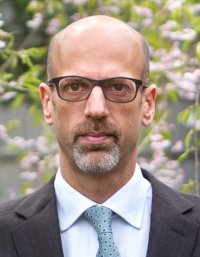
Daniel Markovits is Guido Calabresi Professor of Law at Yale Law School and Founding Director of the Center for the Study of Private Law. Markovits publishes widely and in a range of disciplines, including in Science, The American Economic Review, and The Yale Law Journal.
His current book, The Meritocracy Trap (Penguin Press, 2019), develops a sustained attack on American meritocracy.
The meritocratic ideal—that people should get ahead based on their own accomplishments rather than their parents’ social class—has become our age’s literal common sense. Both Democrats and Republicans, even as they agree on almost nothing else, insist that meritocracy gives everyone fair shot at success and place it at the heart of the American Dream. Markovits argues, however, that both up and down the social ladder, meritocracy is a sham. Today, meritocracy has become exactly what it was invented to defeat—a new aristocracy, only now based on schooling rather than breeding. Upward mobility has become a fantasy, and the embattled middle class is more likely to sink into the working poor than to rise into the professional elite. At the same time, meritocracy ensnares even those who manage to claw their way to the top, trapping rich adults in a pitiless competition, which requires them to work with crushing intensity, exploiting their expensive educations in order to extract a return. People commonly say that we suffer so much inequality because we have too little meritocracy—because elites cheat to get and stay ahead. But in fact, Markovits argues, it’s because we have too much. Meritocracy has created a competition that (even when everyone plays by the rules) only the rich can win and that, at the same time, exploits and degrades even the supposed victors.
After earning a B.A. in Mathematics, summa cum laude from Yale University, Markovits received a British Marshall Scholarship to study in England, where he was awarded an M.Sc. in Econometrics and Mathematical Economics from the L.S.E. and a B.Phil. and D.Phil. in Philosophy from the University of Oxford. Markovits then returned to Yale to study law and, after clerking for the Honorable Guido Calabresi, joined the faculty at Yale.
Hans-Wolfgang Micklitz
Europäisches Hochschulinstitut
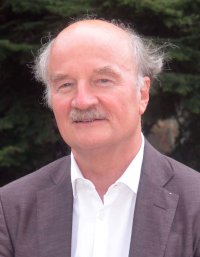
Professor at the Robert Schuman Centre for Advanced Studies at the European University Institute in Florence. Previously, since 2007 Professor for Economic Law at the European University Institute, Jean Monnet Chair of Private Law, as well as Professor of European Economic Law at the University of Bamberg, Germany and the Head of the Institute of European and Consumer Law (VIEW) in Bamberg. In 2012–2014 he was the Head of the Department of Law at the EUI.
He studied law and sociology in Mainz, Lausanne/Geneva, Giessen and Hamburg. He was a consultant for OECD in Paris, UNEP Geneva Switzerland/Nairobi Kenya and CI (Consumers International) Den Haag Netherlands/Penang Malaysia. He carried out study visits at the University of Michigan, Ann Arbor, at the European University Institute Florence (Jean Monnet Fellow), Italy and as a visiting professor at the Somerville College at the University of Oxford. He was a holder of an ERC Grant “European Regulatory Private Law“ (2011–2016) and a co-founder of the Centre of Excellence at the University of Helsinki. He was a Finish Distinguished Professor of the Academy of Science at the University of Helsinki (2016–2020), and holds the Doctor honoris causa degree of the University of Finland (2020).
In his research he focuses on European Law, European Private and Consumer Law, as well as on legal methodology, theory of private law, comparative law and international private and economic law.
Przemysław Pałka
Jagiellonian University
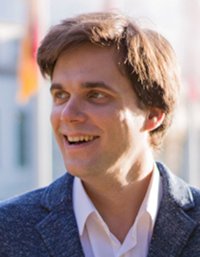
Przemysław Pałka is an assistant professor of law at the Jagiellonian University in Krakow, Poland, and an affiliated fellow at Yale’s Information Society Project. His research interests encompass the intersections of private/economic law, technology and social justice. In particular, his work critically examines consumer law, data law, legal aspects of artificial intelligence, virtual items and data analytics, and the potential for law’s automation. Previously, Pałka was Yale’s Fellow in Private Law (2018-2020), holds a PhD (’17) and an LLM (’14) from the European University Institute in Florence, and an MA (’13) from the University of Warsaw. Tweets at @przemekpalka and blogs at https://przemysLAW.technology/ .
© Shutterstock/Wright Studio
